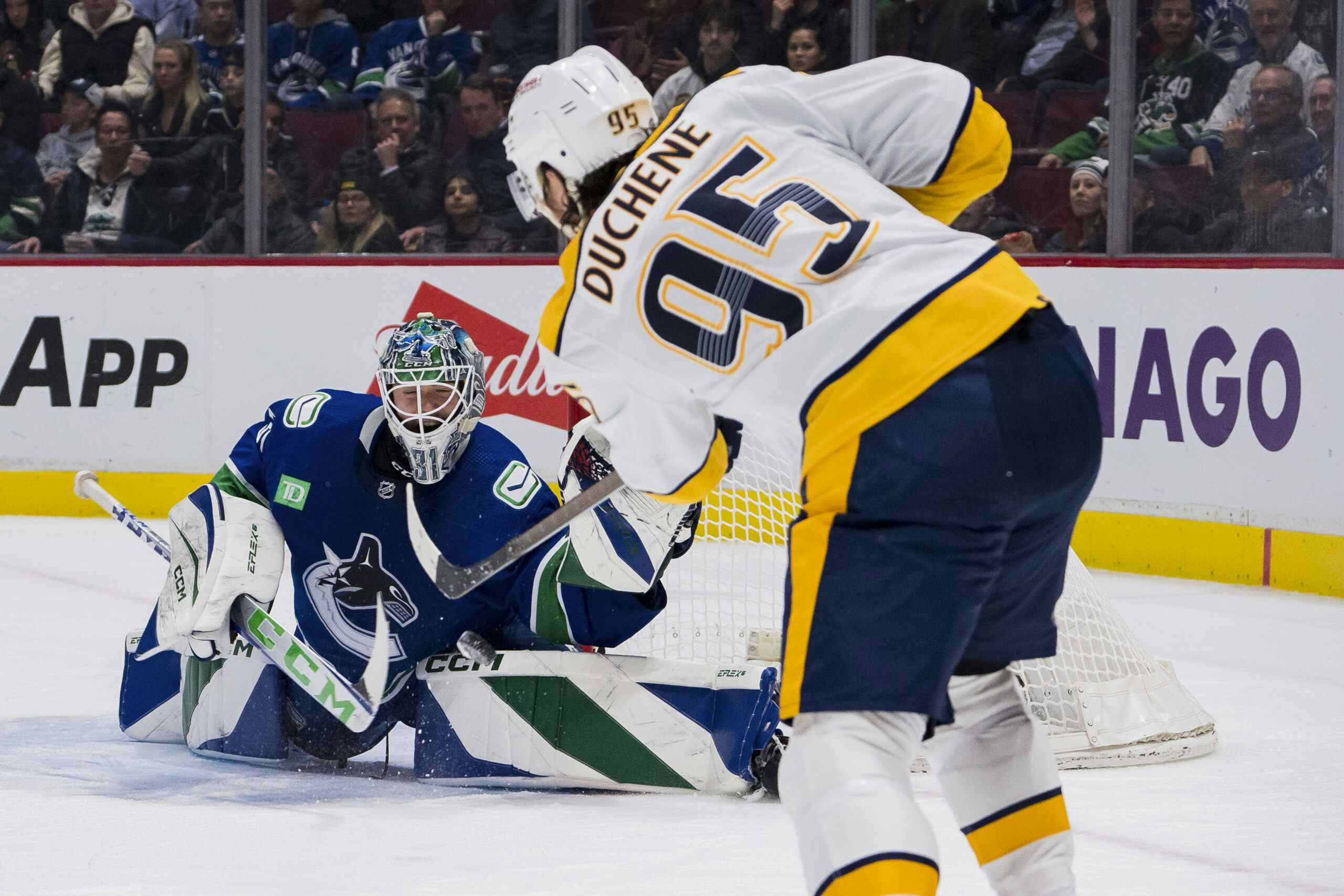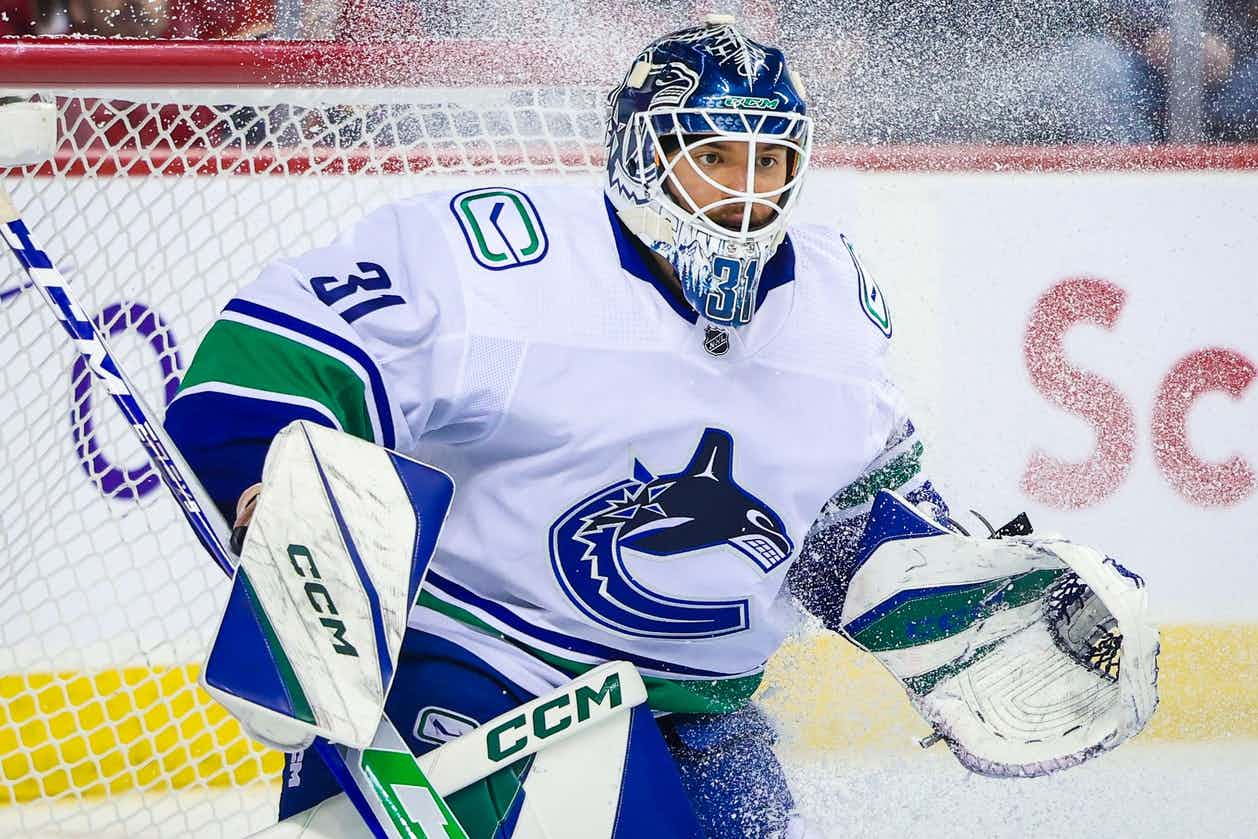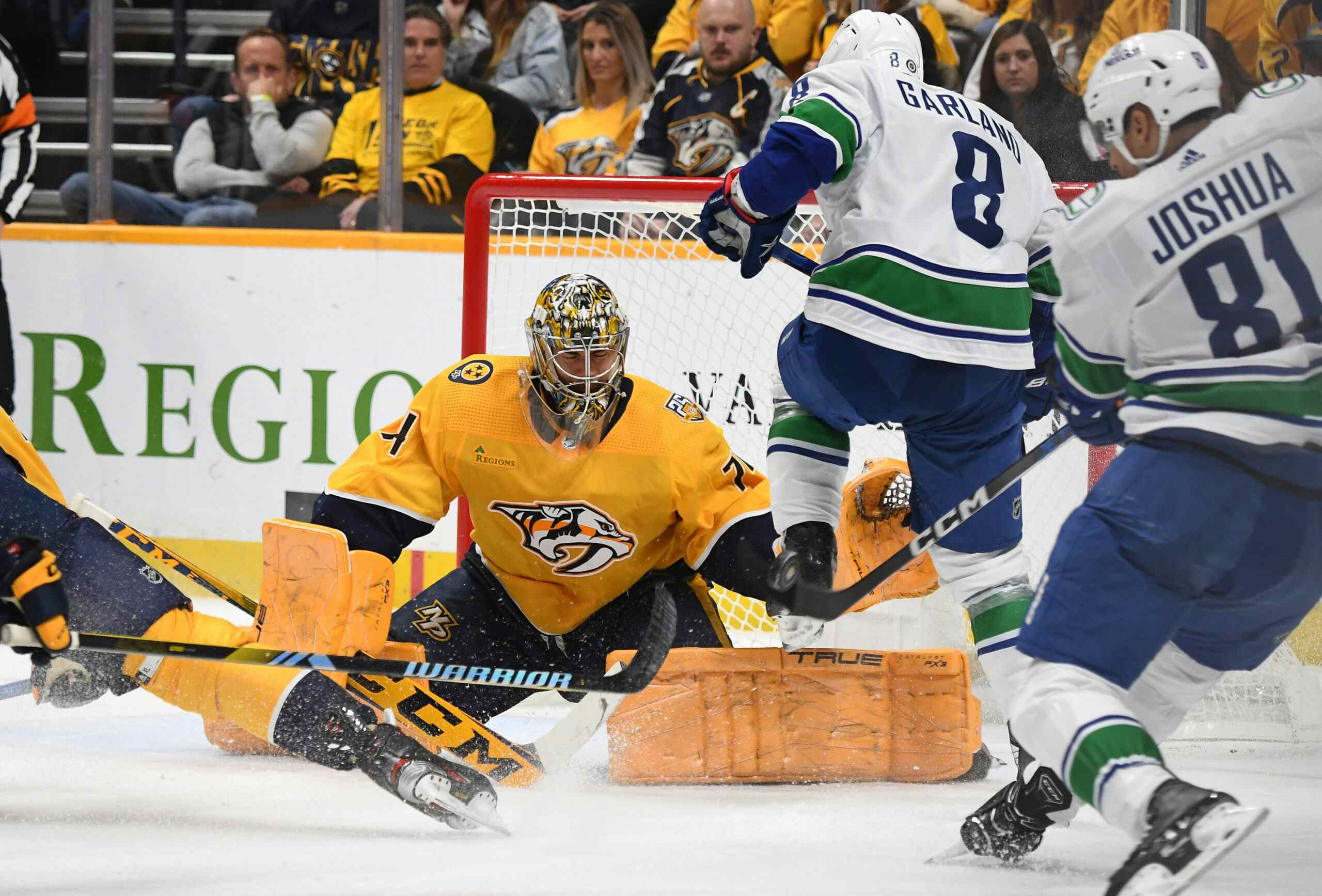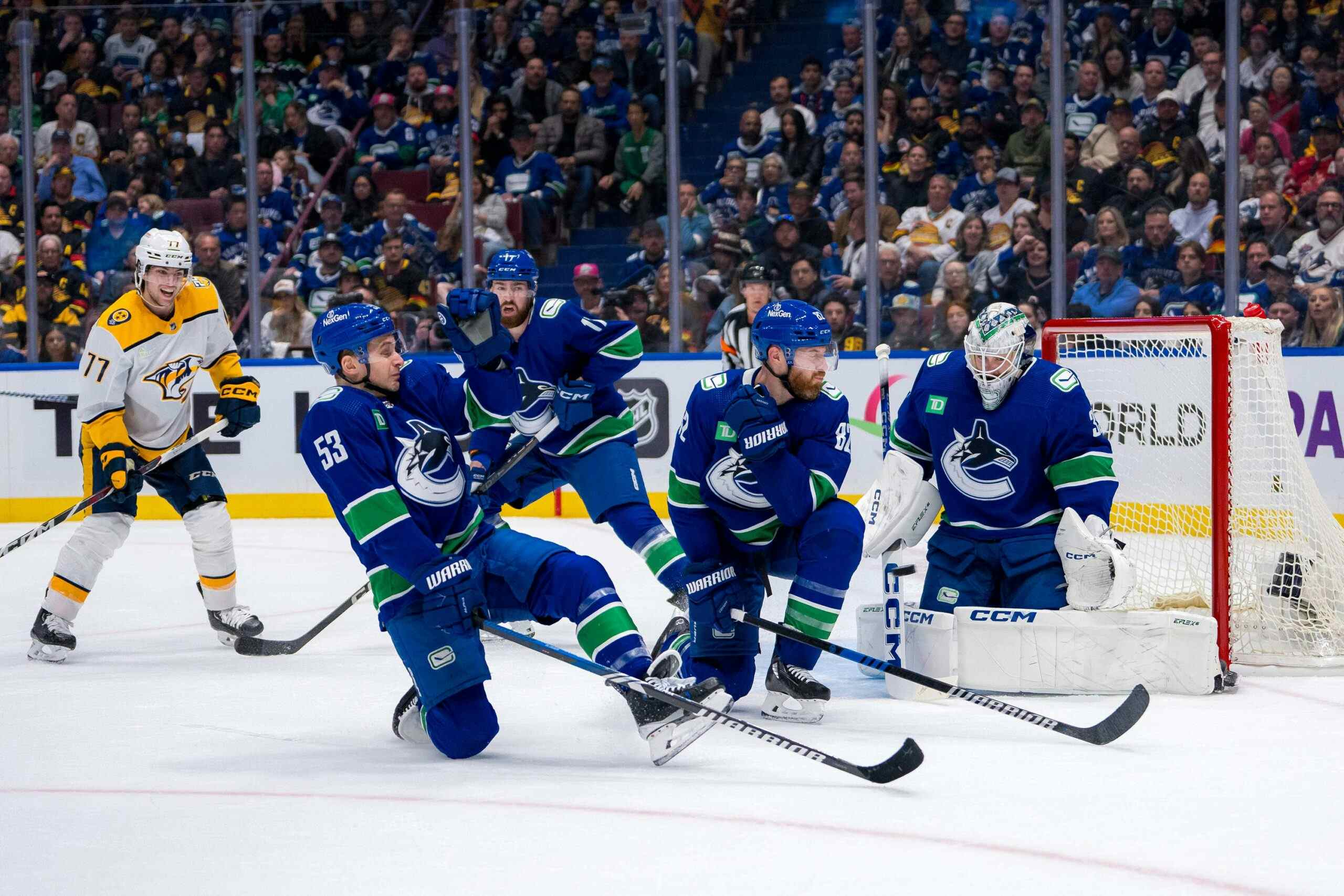Who makes it onto the Vancouver Canucks’ taxi squad for 2021?
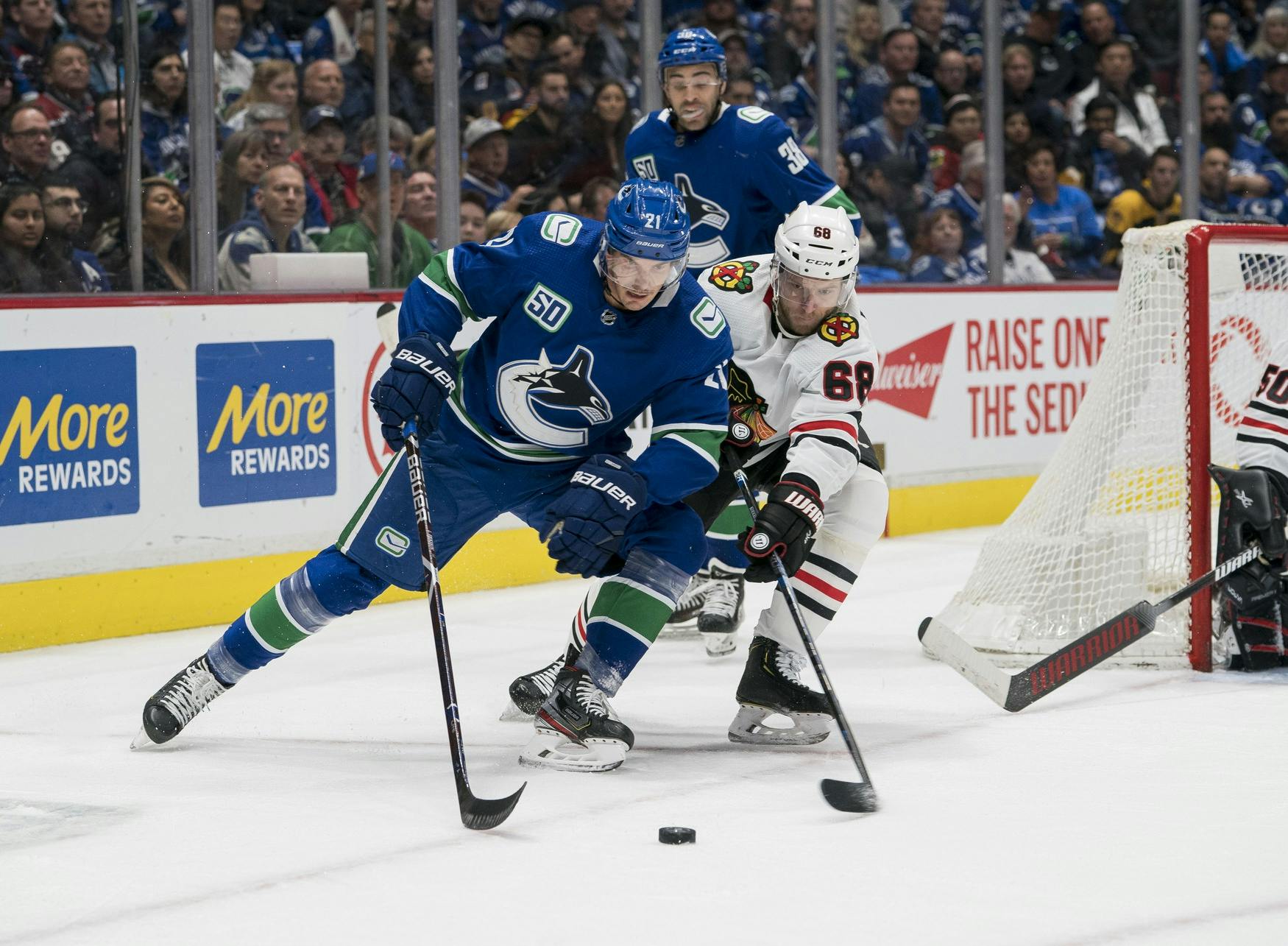
Nothing regarding the NHL’s return-to-play plan for the 2021 season is set in stone, and yet we’re only a couple of weeks from the reported open of training camps. And while many of the details are still fuzzy, we’re now getting a rough idea of how this truly unique year of hockey is going to look — which, for the time being at least, appears to include taxi squads.
As David Quadrelli illuminated in a Monday Mailbag last month, the realities of the pandemic forced the MLB to turn “taxi squad” from an unofficial descriptor to a codified portion of a team’s roster, and it looks like the NHL will follow suit.
In short, a taxi squad is a group of players — four, in the case of the NHL, on top of an expanded 26-player roster — who would accompany the team at all times, despite not being part of the official roster. They’d thus be available for immediate call-up whenever necessary, as opposed to those assigned to an affiliate AHL club. This will be a major difference between the NHL’s taxi squads and those run by the MLB this past season, as there was no minor league baseball being played.
When it comes to the Vancouver Canucks in particular, the existence of a taxi squad would save them the messy trouble of trying to make a cross-border call-up from the Utica Comets.
In other words, it looks like the Canucks could have up to seven additional players on, or in the vicinity of, their roster when they take to the ice in 2021.
Which, of course, raises the question of who those additional seven players will be.
The Initial 23
For the purposes of clarity, we’ll start by listing the 23 players we expect to comprise the main roster.
JT Miller-Elias Pettersson-Brock Boeser
Tanner Pearson-Bo Horvat-Jake Virtanen
Tyler Motte-Adam Gaudette-Zack MacEwen
Antoine Roussel-Jay Beagle-Brandon Sutter
Jayce Hawryluk
Quinn Hughes-Nate Schmidt
Alex Edler-Tyler Myers
Olli Juolevi-Jordie Benn
Brogan Rafferty-Jalen Chatfield
Braden Holtby
Thatcher Demko
There will inevitably be some shuffling involved, and some of the names lowest on the list are definitely swappable, but we’re fairly confident that this is relatively close to the final product, unless there are further transactions.
The Expanded Roster
As of yet, we don’t know how the expanded 26-player roster will work in conjunction with the salary cap. If it were to be increased in proportion to the three additional players, it would put the upper limit at about $92 million, which seems like a dramatic jump. Expect instead for an increase of roughly $1 million per player, putting it in the neighbourhood of $84.5 million.
That means that salary will still be an important factor when constructing the roster.
Justin Bailey- There were calls to get Bailey into the Canucks lineup all last season, after the speedy winger practically tore the AHL a new one with 28 goals in 53 games. If signed — he’s currently the team’s lone remaining unsigned RFA — he’ll remain on the periphery, and his low projected salary makes him an ideal fit for the expanded roster.
Guillaume Brisebois- Briebois is in an interesting phase of his career, caught halfway between the roles of semi-legitimate NHL prospect and uber-dependable AHL veteran. The list of fellow Utica defenders expected to make the team ahead of him is lengthy, but not long enough to keep him off an expanded, 26-player roster. To put it bluntly, he’s also not ranked high enough on the prospect charts to worry all that much about hampering his development.
Tyler Graovac- Graovac was just re-signed after spending the offseason on the UFA market, and it may have been with exactly this sort of role in mind. Graovac makes the minimum salary and posted surprisingly spotless advanced numbers through a sustained audition with the Canucks in 2019/20, though the stats themselves are probably not sustainable. One can never have too many centers available, and Graovac would slot in as the Canucks’ sixth.
The Taxi Squad
That leaves only a handful of legitimate contenders for the taxi squad. Note that, as of this writing, these players would travel with the team while not technically being on the active roster, which means there should be some cap relief available for placing players on the taxi squad, just as there would be for assigning them to the AHL.
Loui Eriksson- Realistically speaking, Eriksson belongs on the expanded roster ahead of a fair number of the players we’ve listed ahead of him. But the existence of a taxi squad may afford the Canucks a unique opportunity; keep Eriksson around for spot-duty, while technically keeping him off the roster and enjoying the cap benefits therein. Eriksson was probably destined to ride the buses in Utica if the upcoming season were anything approaching ordinary, so he’ll be thrilled with this alternative.
Sven Baertschi- Take everything we just said about Eriksson and apply it to Baertschi, albeit on a smaller scale across the board. The prospect of playing the entire season in Canada, with the benefits of NHL travel and per diem, should alleviate many of the concerns that kept Baertschi out of the last return-to-play. Truthfully, Baertschi’s salary is the only thing that kept him out of the big leagues last season, and it would be nice to see that no longer be a factor. He’s still a valuable fill-in, and a better player than most will have on their taxi squads.
Ashton Sautner- Sautner is a difficult player to place. His greatest value to the organization may be as a mentor down in Utica, especially with the expanded roster leaving the Comets significantly less seasoned, but how can you justify not having him ranked in the top-ten of the Canucks’ organizational blueline? Sautner’s been a good soldier for five seasons running, and he deserves the chance that an expanded roster will grant him. Someone else will have to fill the leadership void in Utica.
Jake Kielly/Some goalie who hasn’t been signed yet- There’s no way the Canucks’ taxi squad doesn’t include a third-string goaltender. Sitting Mike DiPietro in the press box all season would be a foolish choice, so right now this gig slides to Jake Kielly — he of 26 career pro games, all but two of which were at the ECHL level. It wouldn’t be at all surprising to see the Canucks sign a veteran like Jimmy Howard to taxi instead, leaving Kielly to platoon with DiPietro in Utica.
Marc Michaelis- Fresh out of the NCAA, Michaelis should probably be given time to develop at the AHL level as a rookie pro. Already 25, however, Michaelis could get the call for the taxi squad in 2021 if the Canucks are in need of a body, and don’t want to interrupt the progress of a younger prospect. As of right now, he’s an unknown quantity.
Josh Teves- Teves is the same age and in the same boat as Michaelis, with the major difference being that Teves has already completed his (largely unsuccessful) rookie pro campaign. It wouldn’t be entirely surprising to see Jim Benning and Co. reason that the positive impact Sautner’s presence might have on prospects like Jett Woo outweighs any potential development Teves might enjoy, and stuff Teves into a permanent press box seat instead.
Who’s not going to be on the taxi squad?
There are, of course, some players in the organization who just don’t belong on a taxi squad.
Prospects like Nils Hoglander, Jack Rathbone, Mike DiPietro, Kole Lind, and Jett Woo are too young and too important to risk them spending any significant time off the ice. For them, it’s either force their way onto the main roster or spend the season in Utica, where they’ll enjoy outsized roles with most of their veteran cohorts up on the expanded roster.
The same can probably be said about the likes of Jonah Gadjovich, William Lockwood, and Mitch Eliot, though they’re ranked far lower on the depth chart and might thus be prone to developmental sacrifice. Chances are good that all will remain with the Comets, where they’ll be supplemented by plenty of minor pro signings.
We’ve also avoided the topic of Micheal Ferland entirely. As of this writing, he’s expected to start the season on the LTIR, and where he goes from there is impossible to determine. If he’s ever healthy enough to play NHL hockey again, Ferland undoubtedly belongs on the main roster, but given that the entire lineup and salary structure would have to be reconfigured to accommodate him, we’ll leave that hypothetical alone for the time being.
Recent articles from Stephan Roget

